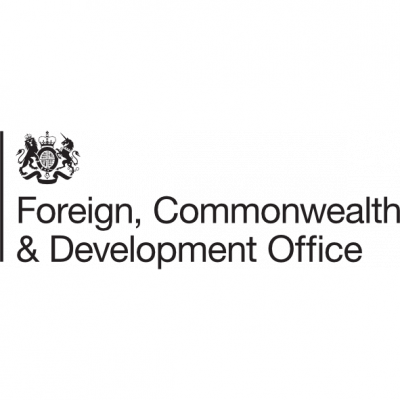Print

Syria Independent Monitoring (SIM) Contract II
Details
Locations:Syria
Start Date:Apr 16, 2020
End Date:Apr 15, 2022
Contract value: GBP 5,812,920
Sectors: Humanitarian Aid & Emergency, Monitoring & Evaluation
Categories:Consulting services
Funding Agencies:
Date posted:Jun 24, 2020
Description
Framework Agreement for: Independent Monitoring and Process Evaluation Regional Framework Agreement (IMPERFA)
Framework Agreement Purchase Order Number: 7930
Call-down Contract For: DFID Syria Independent Monitoring (SIM) Contract II
Contract Purchase Order Number: PO 10032
Objectives:
- The purpose of this contract is to perform a monitoring function on behalf of DFID, providing information that will enable us to assess the delivery of projects in Syria, contribute to improved project design, identify and mitigate risks, and learn lessons to strengthen future programming. DFID defines project monitoring as “tracking progress towards targets – in real time – to allow for corrective action to be taken”. This definition should be considered when reading this ToR. The Theory of Change for this contract is provided in Appendix 1 at the end of this document.
- The expected impact of this contract is to improve DFID Syria’s portfolio performance in a highrisk environment. Improvements in the quality of DFID’s programming in Syria will result in improved humanitarian outcomes and better value for money. This in turn is expected to strengthen public and ministerial confidence in DFID’s Syria programming.
- The expected outcome of this contract is that there will be regular use of strong evidence for accountability, strategic planning and lesson learning, and enhanced knowledge of DFID projects in Syria. Through this contract DFID will be confident that UK taxpayer money is being used effectively and will have an increased knowledge of the operating context and of project delivery. This knowledge will be used to strengthen project performance, oversight and advocacy efforts. 12. The main stakeholders who will receive the outputs of this contract will be DFID and our implementing partners. We may request joint products with other donors and/or, if appropriate, share reports developed under this contract with other donors as well as UN agencies, I/NGOs, NGOs, local authorities and affected populations. 5 OFFICIAL
- The contract will cover all DFID projects in Syria. Currently DFID Syria is designing a new strategy and we can’t confirm yet which partners and projects we will fund post-March 2020. However, for the purpose of bidding for this contract suppliers should assume that the projects that DFID will fund post-March 2020 will be implemented by a range of implementing partners, including multilateral agencies (including the UN), NGOs, the Red Cross and private sector suppliers, working both out of Damascus with the consent of the Government of Syria, and delivering aid cross-border from neighbouring countries without the Government’s consent.
- Projects will deliver results across the country, including in hard-to-reach locations, and cover a wide range of sectors, including: Agriculture/Livelihoods, Education, Food Security, Health, Non-Food Items Shelter, Protection, WASH and Multisector Cash. In addition, DFID may also fund other sectors. The geographical and sectoral scope of DFID’s portfolio in Syria may change over the course of the contract in line with shifting priorities and changes in the operating environment. Therefore, it’s essential that the supplier has a proven track record of delivering flexible and adaptable independent monitoring services.
- The primary beneficiaries of DFID projects in Syria will be people in need of humanitarian assistance (particularly those in acute need), including: people in hard-to-reach locations; internally displaced people; refugees (e.g. Palestinian); vulnerable people (including children, women, elderly people, people with disabilities, etc.).
- DFID will share lessons from the previous independent monitoring contract, implemented between 2016 and 2020, with the supplier.
- Ethical principles, including the principle of ‘do no harm’, must to be mainstreamed throughout all contract activities. Suppliers must take DFID’s Ethical Guidance for Research, Evaluation and Monitoring Activities into account when developing their bids.

